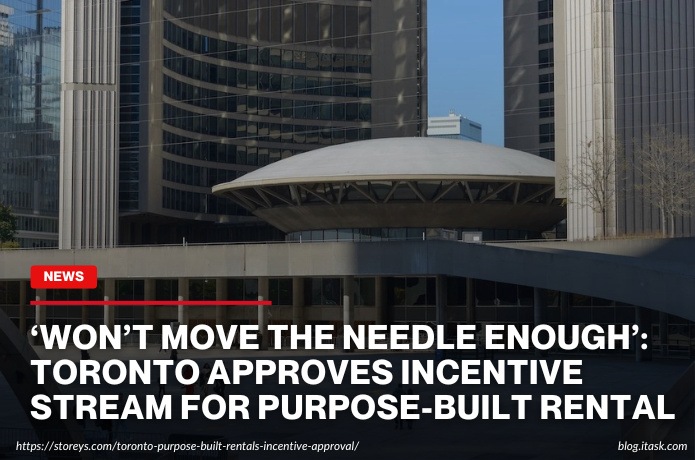‘Won’t Move The Needle Enough’: Toronto Approves Incentive Stream For Purpose-Built Rental
‘Won’t Move The Needle Enough’: Toronto Approves Incentive Stream For Purpose-Built Rental

Toronto City Council has approved a new incentive program to encourage the development of purpose-built rental housing. Dubbed the *Purpose-built Rental Homes Incentives Stream*, this initiative aims to address the city’s housing shortage by offering developers perks such as property tax reductions and deferrals on development charges. However, many in the real estate sector believe these measures may fall short of solving the city’s deep housing issues.
The first phase of the program is expected to result in 7,000 new rental homes, including 1,400 affordable units. The city will prioritize projects that can start construction quickly, ensuring funds are utilized efficiently. A second phase, targeting an additional 13,000 rental units, depends on funding from provincial and federal governments. While these efforts are a step forward, experts argue they might not meet the scale of Toronto’s housing demand.
Critics from the development sector argue that the city's incentives do not fully address the financial and regulatory hurdles developers face. They highlight a disconnect between policymakers and the needs of builders, pointing to rising construction costs and lengthy approval processes as significant barriers. The sentiment among many stakeholders is that the program, while helpful, “won’t move the needle enough” to meet Toronto's housing challenges.
Toronto’s housing crisis has seen affordability decline sharply, with purpose-built rental vacancy rates remaining low. The city has built fewer affordable units than projected over the last decade, and its ambitious new plans must contend with broader economic pressures. Advocates suggest more robust funding and streamlined regulations are necessary for meaningful progress.
The challenges extend beyond municipal efforts. Housing experts note that significant cooperation from higher levels of government is crucial to secure funding and resources for large-scale housing initiatives. Without this, ambitious targets such as adding thousands of affordable units could remain unmet.
Overall, while the newly approved incentives signal a commitment to addressing Toronto’s housing woes, experts and developers alike stress the need for bolder actions. From streamlining the development process to providing substantial federal and provincial support, a multifaceted approach will be required to truly alleviate the city’s housing crunch.
